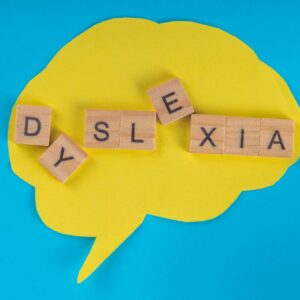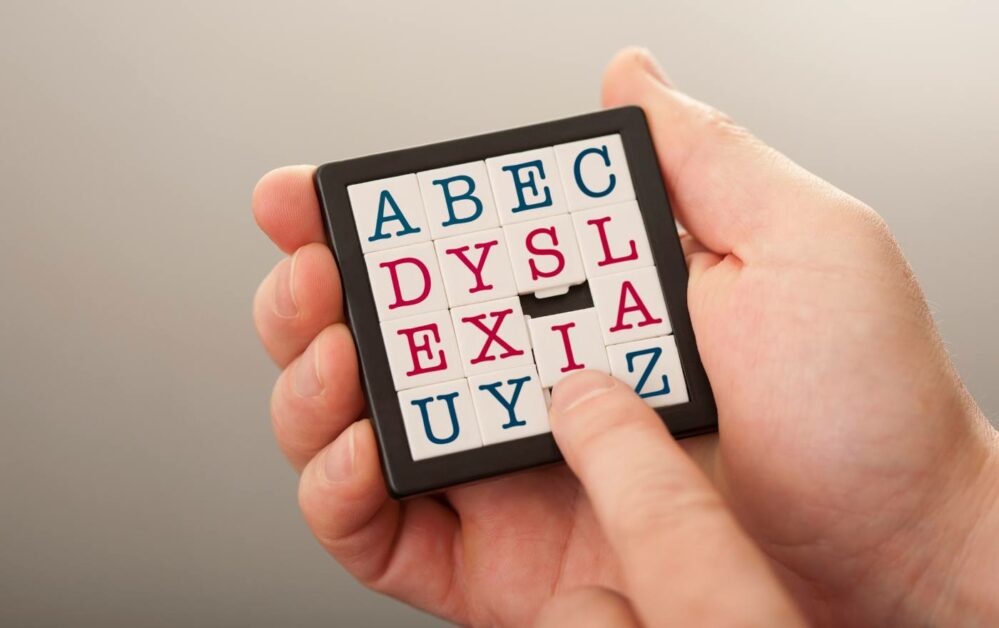
15 Nov Assistive Technology for Dyslexic Readers
ASSISTIVE TECHNOLOGY FOR DYSLEXIC READERS

The Power of Assistive Technology for Dyslexia
Dyslexia, a common learning disability, can present challenges in reading, writing, and spelling. However, thanks to the ever-evolving landscape of assistive technology, individuals with dyslexia now have many tools at their disposal.
In this blog, we will explore some of the remarkable assistive technologies designed to support individuals with dyslexia, making learning and daily life more accessible and enjoyable.
1. Planning Software: Organize Ideas Effectively
For those with dyslexia, this technology offers a structured approach to organizing ideas, making it easier to embark on writing projects, plan assignments, and develop clear and coherent thought processes.
- Scrivener: Scrivener is a versatile writing and project management software. It allows users to organize their writing projects effectively. For dyslexic individuals, its features can help structure ideas, create outlines, and manage complex writing tasks. It’s highly adaptable for various types of writing, making it a valuable tool for academic and professional purposes.
- Scapple: Scapple, developed by the same company as Scrivener, is a mind-mapping and brainstorming tool. Dyslexic individuals can use it to represent and organize ideas visually. The non-linear approach to idea mapping can be especially beneficial for individuals who think spatially or struggle with linear thinking.
2. Text-to-Speech Software: Transforming Reading and Proofreading
One of the most remarkable advancements in assistive technology for dyslexia is text-to-speech software. It empowers individuals to listen to written content, significantly enhancing reading comprehension. Additionally, dyslexic users can use this technology to proofread their work, improving accuracy and boosting confidence.
- Speechify: Speechify is a text-to-speech application that converts written text into spoken words. It can read aloud digital text from a variety of sources, including websites, documents, and e-books. For individuals with dyslexia, Speechify aids in improving reading comprehension, making digital content more accessible.
- NaturalReader: Similar to Speechify, NaturalReader is a text-to-speech software that converts text into natural-sounding audio. It provides an auditory experience, enhancing understanding and retention of written material. NaturalReader is available on multiple platforms, making it versatile and accessible.

3. Speech-to-Text Software: Bridging Verbal and Written Skills
Speech-to-text software bridges the gap between verbal proficiency and written work. Dyslexic individuals often face spelling difficulties, and speech-to-text technology helps circumvent these issues. It accelerates the writing process and ensures a more accurate representation of their ideas.
- Dragon Dictation: Dragon Dictation is a prominent speech recognition software that enables users to dictate text, which is then converted into written content. For dyslexic individuals, this tool can be a game-changer. It allows them to overcome spelling and typing challenges, making writing tasks more efficient and accurate.
4. Literacy Support Applications: Unlocking Reading and Writing Potential
Literacy support applications have become essential tools for individuals with dyslexia, bridging the gap between learning difficulties and academic success. These innovative applications offer features to assist with reading, spelling, writing, and comprehension.
- Read&Write: TextHelp’s Read&Write is a comprehensive literacy support application that offers a range of features, including text-to-speech, word prediction, and a built-in dictionary. It’s particularly valuable for individuals with dyslexia, helping with reading comprehension, spelling, and writing. The word prediction feature anticipates words, aiding faster and more accurate typing.
5. Smartpens: A Revolution in Note-Taking
For individuals with dyslexia, smartpens are revolutionizing how notes are taken and, more importantly, how information is retained.
- Livescribe SmartPen: Smartpens, like the Livescribe SmartPen, are innovative tools that combine traditional note-taking with audio recording. Users can write notes on paper while the pen records the audio of the corresponding discussion or lecture. For dyslexic individuals, this tool offers a multi-sensory learning experience. It allows them to revisit their notes while listening to the audio, reinforcing comprehension and retention.

Conclusion
The world of assistive technology has opened up a realm of possibilities for individuals with dyslexia. These innovations empower them to excel in education, pursue their career goals, and rediscover the joy of reading and learning. Planning software, text-to-speech, speech-to-text applications, literacy support tools, and smartpens are just a few examples of the remarkable technologies designed to enhance the lives of dyslexic individuals. As we move forward, it is imperative to promote awareness of these technologies and ensure they are accessible to all who can benefit from them. With the continued advancements in assistive technology, the future is bright for those with dyslexia as they unlock their full potential and embrace a world of limitless possibilities.
Craig Selinger
Latest posts by Craig Selinger (see all)
- Psychotherapy and Support Services at Cope With School NYC - April 12, 2024
- NYC Parents of Teens Support Group - April 8, 2024
- Here I Am, I Am Me: An Illustrated Guide to Mental Health - April 4, 2024


No Comments